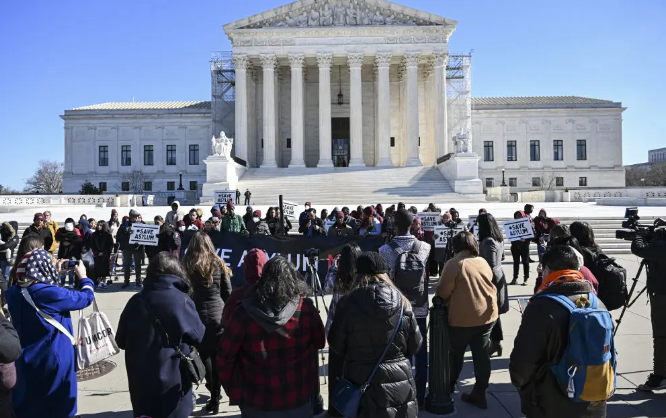The U.S. Supreme Court is set to hear arguments Thursday in a case with sweeping implications for immigration policy and the judicial system’s authority to block presidential actions nationwide.
At the center of the case is a controversial executive order issued by President Donald Trump on his first day back in office. The order seeks to deny automatic U.S. citizenship to children born on American soil if both parents lack U.S. citizenship or permanent residency status—even if they are in the country legally. Legal experts say the order directly contradicts the 14th Amendment, which guarantees citizenship to “all persons born or naturalized in the United States.”
Lower courts have already struck down the order. Judges in Maryland, Boston, and Seattle each issued nationwide injunctions halting its enforcement, declaring the policy unconstitutional and inconsistent with over a century of legal precedent, including the landmark 1898 Supreme Court ruling in United States v. Wong Kim Ark.
Yet the Trump Administration is not asking the Supreme Court to rule on the constitutionality of the order—at least not yet. Instead, the White House is urging the Court to restrict or eliminate the use of nationwide injunctions, legal tools that have repeatedly frozen Trump’s policies in place during litigation.
“These injunctions have reached epidemic proportions since the start of the Trump Administration,” the Justice Department wrote in a recent filing. The administration argues that such sweeping orders—often issued by a single district judge—exceed judicial authority and stifle executive policymaking.
The case, which combines lawsuits filed by multiple states and advocacy groups, raises fundamental questions about how broadly courts can act when they find presidential actions unlawful. If the Court rules in Trump’s favor, it could mean the citizenship policy applies in some states but not others—creating legal confusion and bureaucratic challenges for local governments and families.
Critics of nationwide injunctions argue that they give unelected judges outsized power and encourage forum shopping. Supporters counter that broad injunctions are essential to prevent chaos and ensure equal protection under the law.
“This case is exactly why nationwide injunctions are necessary,” said Rachel Rosenbloom, a law professor at Northeastern University. “You can’t have some babies being citizens and others not, depending on the courthouse closest to them.”
The case comes amid sharp divisions on the Supreme Court and growing tension over the balance of power between the judiciary and the presidency. A ruling is expected to set precedent not just for immigration, but for how federal courts respond to executive overreach in the years ahead.









































